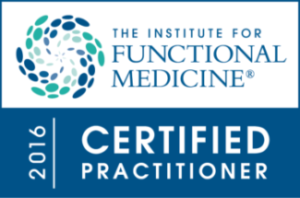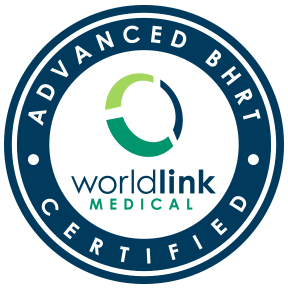How to Address High Blood Pressure Symptoms
High blood pressure (also known as hypertension) is one of the most serious health conditions in the United States. It’s a common contributor to heart disease, the leading cause of death in America.
As blood circulates through your veins and arteries, it pushes against the walls of the blood vessels with a certain amount of force known as blood pressure. Functional medicine doctors will measure two numbers to determine blood pressure:
- Systolic blood pressure, which is the larger number that measures your blood pressure when the heart pumps.
- Diastolic blood pressure, which is the smaller number representing blood pressure in between heartbeats.
Recently, the American Heart Association and other medical cardiology establishments lowered the “normal” blood pressure range to 120/80. But even without lowering the standard of normal blood pressure levels, most people suffer from high blood pressure—and many don’t even know it. High blood pressure symptoms often aren’t caught until it’s too late.
Let’s talk about the dangers of high blood pressure and some practical steps for finding a healthy balance.
The Dangers of High Blood Pressure
You’re likely aware of the many health complications that can be traced back to high blood pressure. In fact, hypertension is linked to the two leading causes of death in the United States: stroke and heart disease.
Hypertension can lead to many bodily complications, including:
- Aneurysm—When blood pressure levels are too high, the blood vessels weaken, bulge, and can rupture.
- Heart attack and stroke—Hypertension often hardens and thickens the arteries, leading to heart attack or stroke.
- Kidney damage—High blood pressure narrows and diminishes blood vessels in the kidneys, inhibiting healthy kidney function.
- Heart failure—Elevated blood pressure levels mean your heart has to work harder to pump blood normally. The walls of the left ventricular thicken and slow and may eventually lead to complete heart failure.
- Vision loss—Blood vessels in the eyes can be narrowed, thickened, or torn.
- Dementia—Blocked arteries limit the brain’s blood flow and oxygen levels, often resulting in vascular dementia. Strokes can also cause vascular dementia. Overall, lack of oxygen makes it harder for you to understand and retain information.
High blood pressure symptoms can quickly escalate into something much more serious, making it vital to address and thoroughly heal the body.
Why the Conventional Approach to High Blood Pressure Doesn’t Always Work
When treating high blood pressure symptoms—as with many other health conditions—conventional doctors often resort to prescription medications. This is often a trial-and-error process unique to each individual.
Diuretics, calcium channel blockers, and enzyme and receptor blockers are some of the drugs used by doctors to regulate hypertension. Unfortunately, these medications have serious side effects and interfere with the body’s natural healing process.
Thankfully, conventional doctors also address lifestyle habits such as nutrition, exercise, and alcohol consumption. Most treatment plans, however, focus on addressing symptoms rather than forming lasting habits that enable the body to heal itself naturally.
How Functional Medicine Can Effectively Treat High Blood Pressure Symptoms
When it comes to treating high blood pressure symptoms, functional medicine doctors also focus on lifestyle changes. However, this holistic approach focuses on allowing the body to heal itself rather than blocking the body’s natural functions.
A functional medicine doctor will examine you and discover the root cause of your high blood pressure. For many people, adjusted lifestyle habits will help—such as incorporating more whole foods into your diet, exercising more, breaking smoking habits, and keeping alcohol consumption to a healthy level. Your genetics may mean you’re more susceptible to developing high blood pressure, and your functional medicine doctor will take this into account.
Stress and anxiety also contribute to poor health—and high blood pressure symptoms—so your functional medicine doctor will also address these issues and help you find health and healing from the inside out.
A secondary health condition may lead to inflammation and high blood pressure. Functional medicine doctors will find and address any inflammation in the body and the causes behind it. Environmental factors such as toxins or allergens are also considered when addressing overall health.
Most of us are deficient in certain vitamins and minerals. Vitamin D, Vitamin C, and Potassium are key in regulating blood pressure. Your functional medicine doctor will make sure your body is getting the necessary nutrients.
Finally, hormones also play a role in how your body functions. Imbalanced hormones may be a contributing cause or a symptom of high blood pressure, and hormones are key when it comes to healing from any illness or condition. Imbalanced hormones can lead to high cholesterol, brain fog, loss of muscle strength, and depression—among many other health conditions. Vital Health Solutions offers hormone consultations, hormone therapy, and a free hormone consultation quiz. Treating high blood pressure symptoms require a full-body approach that includes hormone regulation.
Vital Health Solutions in Conroe, Texas
Dr. Cheryl Winter, DCN, FNP-BC/APRN, RDN, and IFMCP, is a functional medicine doctor treating patients in Conroe, Texas. She believes in healing the whole person and finding the root cause of a health issue, not just treating symptoms. From nutrition to hormone therapy, Dr. Cheryl is here to help you heal from high blood pressure symptoms. Schedule a free 15-minute consultation with Dr. Cheryl and take your first steps toward healing.








